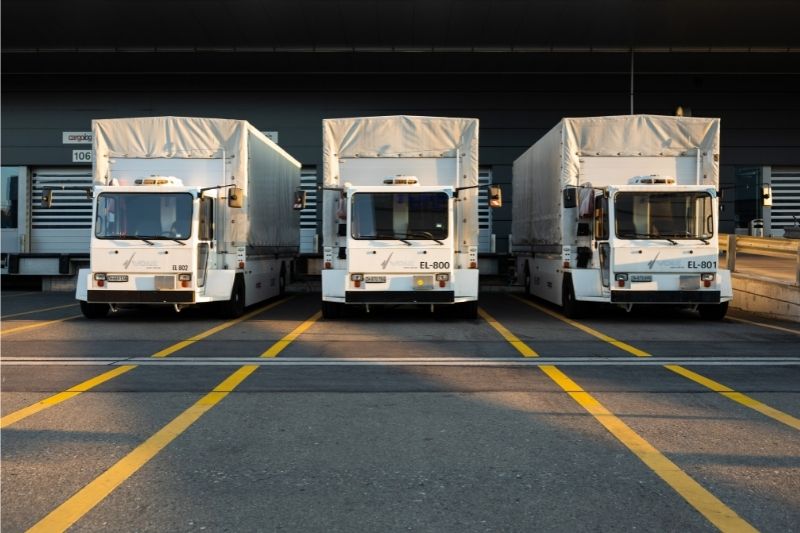No products in the cart.
How Can Transport Businesses Use Tech to Improve Operations?

The transport industry is one of the major economic contributors in any country. It is for this reason that it has become critical to ensure that transportation becomes more efficient and effective. To do so, transport businesses can utilize several tech gadgets that have been developed to assist them.
Some of these devices are used for transporting people while others are meant for transporting cargo from one point to another. The use of each gadget has its advantages and disadvantages but they all aim at improving the business operations process in the transportation sector. In this article, we will look at six or seven of such tech gadgets that will maximize the efficiency of the transport industry.
Fleet Dashcams
Another tech gadget that transport businesses can use is fleet dashcams. These devices are similar to security cameras found in homes and other buildings since they allow managers to monitor their drivers while on duty. Using trusted fleet dashcams allows you to record happenings both inside and outside of the company vehicle which could be critical if any accidents occur during shipment. It also provides evidence in case something happens with your drivers out on the road, especially when it comes to insurance claims.
This type of camera operates using a car charger or even batteries so you’ll never have to worry about running out of power midway through an important event. Dash cameras are also weather-resistant so they can be exposed directly to harsh elements without being damaged by moisture, heat, cold, etc.
Fuel Management Systems
Fuel management systems are devices that are meant to track the fuel usage of company vehicles. Modern cars have eliminated many inconveniences associated with fueling them up but it is still important for managers to know exactly how much fuel their trucks or other vehicles use while transporting cargo. The system tells managers when their vehicles need to be refueled and the preferred gas station to save money.
It can also help reduce insurance claims in such cases. Managers can analyze any damage sustained by a vehicle due to an accident and compare it to the amount of fuel left before arriving at the destination. If there is not enough fuel, they will know that this was the cause of the incident and claim accordingly, thus maximizing savings for both parties involved in such a process.
Electronic Logbooks
Electronic logbooks are another tool that transport businesses use to improve their operations. This device records all information about company drivers’ hours of operation every day while they’re on shift or out on deliveries or jobs involving transportation. It records start and end times, stopovers, and even break times.
Managers can check the activities of company drivers at any given time by logging on to a website or some other online portal where this information is stored. This allows managers to know exactly how long their drivers have been on shift and what they’ve been doing throughout that period, which allows them to become more efficient and productive.
GPS Vehicle Tracking
This device is another tool that transport businesses can use to monitor their vehicles and drivers while they’re on duty. It works by sending information about a vehicle’s location from a handheld device or an online portal directly to the company manager’s smartphone, tablet, or laptop computer.
This allows managers to see exactly where each of their vehicles is located throughout the day, thus increasing efficiency and productivity. It becomes easier to manage multiple company vehicles at once since managers will know which ones are closest to a given destination or job site without having to waste time checking on them manually. This also reduces fuel spending by allowing managers to easily find out where their company vehicles are currently located and which is closest to a gas station.
Shipping Management Systems
This is yet another tech gadget that the transport sector can use to improve their business operations. It is an automated system where shipping managers can monitor the entire shipment process, from receiving goods at the warehouse to delivering them to their destination. They can do this by checking individual packages or cargo through handheld devices or online portals that have been linked to the system.
Managers can use this system to compare estimated arrival times with real-time information to increase efficiency and productivity. It also allows managers to determine exactly where a package is located at any given time throughout the shipment process, the reason for a delay if one occurs, and what needs to be done to get it where it needs to go as soon as possible.
By using modern technology, transport businesses can create a system that is more efficient, productive, and cost-effective for everyone involved in this process. Whether it’s fuel management systems that allow managers to find the nearest fuel station or electronic logbooks that track their drivers’ hours of operation, these devices all play an integral role in streamlining the transport process and ensuring that everything runs smoothly.
















Leave a Reply